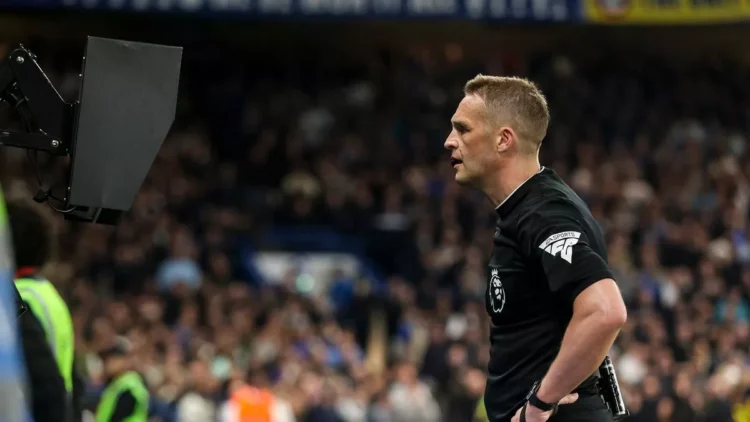Premier League derbies always attract huge betting activity, especially on weekends when casual fans join the action. The atmosphere, rivalries, and media hype often push people to bet with their hearts instead of their heads. It’s the same mistake seen time and again, overestimating form, ignoring context, and chasing unlikely outcomes just for the thrill. Even players who spend time on the best online casino in the Philippines can fall into this trap when they switch from slots or roulette to football wagers. The excitement is real, but without discipline, weekend betting on derbies often leads to frustration instead of profit.
Overrating Rivalry
Derby matches are special – players are more motivated, fans are louder, and the atmosphere is full of emotion. But that doesn’t mean all the statistical and tactical factors go out the window. One of the biggest mistakes weekend bettors make is to overrate the rivalry and ignore the actual situation on the pitch.
For example, if one team goes into a derby with half the squad injured or tired after a tough European game, the idea that “rivalry evens everything out” doesn’t really hold up. Form, fatigue, and the match schedule still play a huge role in the result.
In other words, rivalry adds sparks, but it doesn’t erase differences in quality and preparation. Bettors who rely only on derby emotions, instead of the full picture, often end up with the wrong prediction.
Ignoring Squad Rotation
One thing weekend bettors often overlook is the lineup on match day. After European games, coaches have no choice but to rotate, key players get rest while backups step in. On paper it still looks like a “big derby,” but the reality on the pitch can be very different.
For example, if a team plays without its main striker or with a reshuffled defense, the game’s dynamics change from the very start. Tradition and rivalry don’t mean much if the difference-makers aren’t on the field.
A bettor who ignores the official lineup and only looks at the club’s name or derby history can easily miss the real context. In many derbies, rotation matters more than rivalry itself.
Betting on Emotion
Fans are passionate by nature, and that’s what makes derbies so special. But the same passion often carries over to betting slips. Many players put their money on “their” club regardless of the odds, current form, or real circumstances. It’s the classic mistake where emotion takes the place of strategy.
This is often seen in online betting in the Philippines, where popular teams attract huge amounts of bets simply because they have a loyal fan base. When fan loyalty mixes with money, risk assessment disappears and decisions become subjective. Instead of checking injuries, schedules, or player performance, many follow their hearts rather than the stats.
The problem is that this approach rarely pays off. Rivalry and emotions can make a match more exciting, but they can’t replace discipline and a clear head. In the end, those who manage to separate the fan from the bettor stand a much better chance of winning.
Chasing Big Odds
One of the most common traps in derbies is the “tempting” odds on upsets. When bookmakers offer a big payout on the underdog, many bettors can’t resist the idea of turning a small stake into a big win. The problem is that statistics clearly show, favorites in derbies avoid defeat much more often than people think.
Of course, surprises do happen, and that’s part of what makes football exciting. But if your whole betting strategy is based on chasing miracles, it usually ends in losses. Big odds are big for a reason: they reflect how unlikely the outcome really is.
A smarter approach is to look for value in more realistic odds, where the chances are higher and the risk is lower. In derbies, that often means focusing on specific markets, like total goals or both teams to score, instead of blindly chasing the upset.
Home Advantage in Premier League Derbies
In English football, playing at home has always mattered, and in derby matches it can tip the scales even more. Grounds like Anfield, Old Trafford, or Stamford Bridge often feel like fortresses when local rivals show up. The roar of the crowd pushes the home team forward, while the same noise can rattle the visitors.
Bettors sometimes shrug this off, thinking that the rivalry itself cancels everything out. But numbers tell a different story – Premier League teams tend to get better results on their own turf, especially in the biggest games.
For anyone betting on a derby, where the match is played can be just as important as who’s on the pitch. Overlooking the impact of home advantage usually means missing a key piece of the puzzle.
Boxing Day Derbies and the Congested Schedule
The Premier League’s festive period is like no other, games come thick and fast, and Boxing Day derbies are often the ones everyone circles on the calendar. For fans, it’s tradition mixed with holiday excitement. For bettors, though, it can be a bit of a minefield.
By the time Boxing Day arrives, many teams have already played two or three matches in the space of a week. Legs are heavy, benches are stretched, and even top sides can suddenly look vulnerable. Managers sometimes rest their stars, thinking ahead to the next clash, which can completely change the balance of a derby.
That’s why betting on holiday fixtures without factoring in fatigue or rotation is risky. A side that looks unbeatable on paper might be running on fumes once the whistle blows. The lesson? In Premier League derbies, especially around Christmas, it pays to think beyond the hype and look at the schedule.




